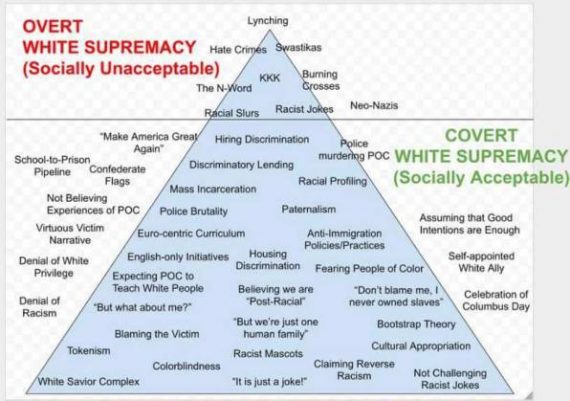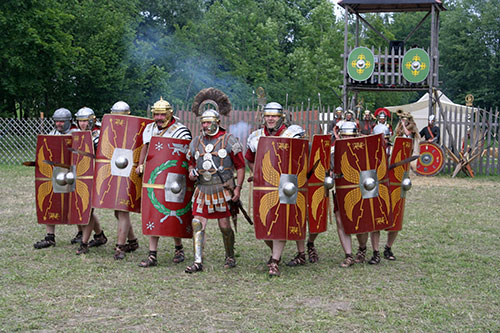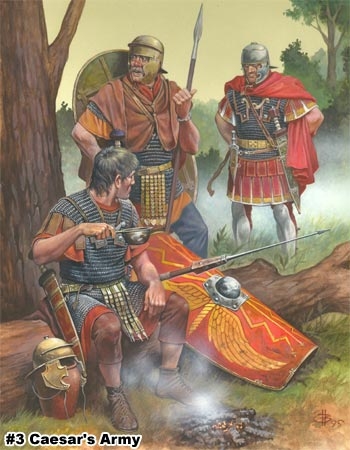I firmly believe that the Bible teaches that we receive eternal life by grace alone through faith alone in Jesus Christ alone. But is that what Paul is teaching in Ephesians 2:8-9 when he writes, “For by grace you have been saved through faith, and that not of yourselves; it is the gift of God, not of works, lest anyone should boast”? Though many Christians think so, I do not. This study of Ephesians 2:8-9 will explain what I think Paul is really talking about in these verses.
Before we get to that, I want to address a question from a reader about whether it is sinful or not for Christians to engage in New Age practices.

Question from a Reader about New Age Practices
I feel like a lot of Christians are against things like manifesting, meditation, and positive affirmations. I do believe Jesus died for my sins and he is the way to heaven. But most of my day is centered around these New Age practices because they help me clear up the doubt and fear in my life and bring me to a better mental state and ultimately so much more happiness. Is there anything wrong with this and should I feel guilty for it? Is this talked about in any of your books? I would love to hear more about what you have to say. I appreciate your response it was a weight lifted off my shoulders.
Great question! To my knowledge, I have not written about this anywhere.
Let me give you a principle that I use in my life that helps me often make tricky decisions about morality. There are two ways to approach life regarding biblical morality. They are this: First, some people think we should only do what the Bible commands. Second, some think we can do anything the Bible doesn’t forbid.
The first group thinks that we should only do what the Bible tells us we can do. Everything else is potentially sinful. This is why some extreme groups, like the Amish, don’t have electricity and won’t drive cars or have phones. That’s super simplistic, and there are other reasons also, but one reason for this approach to life is that the Bible doesn’t mention such things, and so we should avoid them.

The second approach is that we should only avoid what the Bible strictly forbids. This is the approach that most Christians try to follow, but even here, there is a wide diversity of opinion on what the Bible forbids. For example, lots of Christians in previous generations taught that playing cards was sinful. But the Bible doesn’t forbid this practice anywhere. So why did they think cards were sinful? I honestly don’t know, but they probably had their reasons.
These issues sort of go hand-in-hand with whether the Bible is prescriptive or descriptive, but that’s a slightly different issue, and so I’ll leave that one alone for now.
Anyway, I do follow that second option. For the most part, God gives us freedom to live life how we want, as long as we don’t go against the clear teachings of Scripture on moral issues. This is not a fool proof plan, because of course, the Bible never strictly forbids slavery, but we all know slavery is evil. I use a bit of trajectory hermeneutics to help make these sorts of conclusions.
So how can we apply this to New Age practices?
Well, I need to be honest. I am mostly ignorant of New Age practices and beliefs. I did a little reading and watched a few videos, but based on my extremely limited knowledge, it seems to me that many of the New Age practices are quite similar to some of the practices mentioned in the Bible, but the New Age approach sort of removes God from the equation.
So for example, many New Age practitioners talk about Manifesting or the Law of Attraction, where, which some positive thinking about yourself and the universe, you can bring good things to yourself and turn hopes and dreams into reality. Well, this is somewhat similar to prayer. Rather than trying to manifest your hopes and dreams into reality, why not have a conversation with God about your hopes and dreams instead?
What about positive thinking? Well again, why not think positive thoughts about who you are in Jesus Christ? Why not recognize all the truths from Scripture about what God thinks about you?
Does this mean that manifesting or positive thinking are sinful? …. Probably not. I just don’t think it is anywhere near as effective as prayer or as claiming the truths of Scripture about yourself.
Now look, I would avoid some of the New Age beliefs that teach we are all mini gods. That’s not true. Or that all roads lead to heaven. I am not a universalist and so don’t agree with that either.
Anyway, I am not an expert on any of this. I would love it if you weighed in below by leaving a comment. Let me know what you think about mystical beliefs and practices and how they line up with Scripture or contradict it.
By Grace are You Saved Through Faith … Ephesians 2:8-9
This study was difficult for me to prepare, because I could spend hours talking about Ephesians 2:8-9 and all the various ways of understanding this verse, and also the importance of understanding the key terms in this verse, such as grace, saved, faith, and the “gift of God” at the end of the verse. I have lessons on all these words in my Gospel Dictionary Online Course for those who join my discipleship group.
But let me just try to summarize everything for you. Let us begin with the traditional understanding of Ephesians 2:8-9. The verses say this:
Ephesians 2:8-9. For by grace you have been saved through faith, and that not of yourselves; it is the gift of God, not of works, lest anyone should boast.

Traditionally, Christians believe that Ephesians 2:8-9 is talking about how to receive eternal life. I even taught this in the past, and you read my old teachings on Ephesians 2:8-10 here. Christians think this because of the word “saved.” Most Christians think that the word “saved” refers to receiving eternal life and going to heaven when you die.
Therefore, most Christians think that this verse is teaching that God offers eternal life to use solely by His grace, and we receive this free gift through faith … that is, by believing Jesus for it.
 There is also an issue there at the end of the verse about the “gift of God” and what it refers to. What is the gift of God that Paul is referring to? Is it the grace? The faith? the salvation? I have taught about this frequently in the past, so I’m not going to dive deep into the question now. (See these articles: Faith is NOT a gift from God, Is faith the gift from God, Faith is Not a Gift from God) The answer to the debate, however, is that the Greek words have the entire “by grace are you saved through faith” package in view. The gift that Paul has in mind is all that God has done for us human to offer us salvation by grace through faith. That’s all I’m going to say about that, and you can read those other articles for a longer explanation.
There is also an issue there at the end of the verse about the “gift of God” and what it refers to. What is the gift of God that Paul is referring to? Is it the grace? The faith? the salvation? I have taught about this frequently in the past, so I’m not going to dive deep into the question now. (See these articles: Faith is NOT a gift from God, Is faith the gift from God, Faith is Not a Gift from God) The answer to the debate, however, is that the Greek words have the entire “by grace are you saved through faith” package in view. The gift that Paul has in mind is all that God has done for us human to offer us salvation by grace through faith. That’s all I’m going to say about that, and you can read those other articles for a longer explanation.
Now, it is 100% true that we receive eternal life by grace through faith. The Bible teaches this everywhere (cf. John 3:16; 5:24; 6:47).
However, although the Bible everywhere teaches that we receive eternal life by grace along through faith alone in Jesus Christ alone, Ephesians 2:8-9 is not one of the verses that teaches this idea.
The reason is because the word “saved” in Scripture does not ever actually refer to receiving eternal life. As I briefly explained in the previous study of Ephesians 2:5-7, the word “salvation” means “deliverance” and the context of the passage determines what kind of deliverance is in view. When you perform this study on every passage in the Bible (as I have done), you discover that the Bible never uses the words “saved” or “salvation” in reference to receiving eternal life.
Not even here in Ephesians 2:8-9.
Again, as we saw last time, the salvation of Ephesians 2 has in view the way God has delivered us from our bondage and slavery to the sin of blame, accusation, scapegoating, and violence that dominates and rules the world. Since Cain murdered Abel, the world has run on violence. We know of no other way to live.
But God, through the person and work of Jesus Christ, came and rescued us, delivered us, SAVED us from this way of living and showed us a completely different way of living. This new way of life is what we were made for originally, and what God has always modeled for us, and what we are now to walk in, as we follow Jesus.
God revealed this to us out of His grace, and as we follow this new way by faith, we will be saved from the death that has enslaved humanity.
In other words, Ephesians 2:8-9 is not about how to go to heaven when you die, but rather about how God stepped in to the human problem to rescue us from our slavery to death.

So with that in mind, here is how to read Ephesians 2:8-9:
God gave us an amazing free gift [by grace] in showing us how to live a different way than through violence and bloodshed [are you saved], and while this new way of living is counterintuitive and seems to contradict everything we think we know about life, if we believe that what we see in Jesus is the true way to properly live life [through faith], then God will lead us into this new way of life. This entire thing did not come from ourselves. We humans did not think it up and come to this new understanding on our own [and that not of yourselves]. This entire revelation of the new way to live life is a gift from God [it is the gift of God]. No one can boast that they thought this up on their own [not of works so that no one can boast]. Nope, it’s solely and only from God.
Does that way of reading these verses make sense?
This way of reading the verse fits perfectly in the overall context of Ephesians 2, where Paul has laid out the problem of humanity in Ephesians 2:1-3, the solution to this problem that has come from God through Jesus in Ephesians 2:4-10, and the application of how to live this new way in Ephesians 2:11-22.
Again, Ephesians 2 is not about how to go to heaven when we die, but is about how to bring heaven down to earth by living at peace with one another here on this earth, just as Jesus did during His life and just as God wants us to do in ours. And our world desperately needs this way of living right now, doesn’t it?
We will pick back up next time with Ephesians 2:10 as we continue to talk about this new way of living as revealed in Jesus.








 First, I am not fond of the term “sinful nature,” and it is not the best translation of the terms here that Paul wrote in the Greek. The Greek word is sarx, which is best translated as “flesh.” I argue in
First, I am not fond of the term “sinful nature,” and it is not the best translation of the terms here that Paul wrote in the Greek. The Greek word is sarx, which is best translated as “flesh.” I argue in 
 Wrath is a fire that destroys everything it touches, and the fire of wrath is sparked by human desire that leads to human violence.
Wrath is a fire that destroys everything it touches, and the fire of wrath is sparked by human desire that leads to human violence.
 I recently received this question from Aaron:
I recently received this question from Aaron: First, truth. Peace does not require truth about our enemies, but truth about ourselves. Finger pointing always leads to war. But it is only we can look at our own face in the mirror that we can own up to our own violence and bring an end to it.
First, truth. Peace does not require truth about our enemies, but truth about ourselves. Finger pointing always leads to war. But it is only we can look at our own face in the mirror that we can own up to our own violence and bring an end to it.

 Be careful about accusing and condemning others. If you are into politics, it is very easy to start seeing your political opponents as monsters. As less than human. It is easy to start calling them names and wishing for their death. That is the sin Paul has in view here in Ephesians 2:1.
Be careful about accusing and condemning others. If you are into politics, it is very easy to start seeing your political opponents as monsters. As less than human. It is easy to start calling them names and wishing for their death. That is the sin Paul has in view here in Ephesians 2:1.
 Listen to the podcast for the full discussion, but the bottom line truth is that whenever you think about criticizing a political opponent or person for their actions, first consider whether you would say the same thing if someone from your own political party had done the same thing. (Chances are, someone from your own political viewpoint HAS done the same thing… when that happened, what did you say or do?) If you would be silent, then remain silent now. If you spoke out, then feel free to speak out now.
Listen to the podcast for the full discussion, but the bottom line truth is that whenever you think about criticizing a political opponent or person for their actions, first consider whether you would say the same thing if someone from your own political party had done the same thing. (Chances are, someone from your own political viewpoint HAS done the same thing… when that happened, what did you say or do?) If you would be silent, then remain silent now. If you spoke out, then feel free to speak out now.
 Do you see the difference? In the teaching of eternal security, free grace is not a license to sin but is rather a warning against sin. We say “Yes, grace allows you to sin all you want, but when you really understand grace and sin, why would you want to?” Grace allows you to sin all you want just like owning a knife allows you to stab it into your leg. Yes, you can do this if you want to, but why would you want to?
Do you see the difference? In the teaching of eternal security, free grace is not a license to sin but is rather a warning against sin. We say “Yes, grace allows you to sin all you want, but when you really understand grace and sin, why would you want to?” Grace allows you to sin all you want just like owning a knife allows you to stab it into your leg. Yes, you can do this if you want to, but why would you want to? The first example of the Israelites in the wilderness clearly refers to physical death, rather than to eternal torment in hell. The example of the angels is more difficult, since we are not quite sure what event Jude has in mind. But many believe he is referring to the “sons of God” who had sexual relations with the daughters of men in Genesis 6, and were imprisoned as a result. Yet notice that while these angels are imprisoned in chains and darkness, they are not being tortured with fire. In fact, darkness and fire are mutually exclusive. And since angels are immortal, they cannot be killed. Therefore, they were imprisoned and are awaiting judgment.
The first example of the Israelites in the wilderness clearly refers to physical death, rather than to eternal torment in hell. The example of the angels is more difficult, since we are not quite sure what event Jude has in mind. But many believe he is referring to the “sons of God” who had sexual relations with the daughters of men in Genesis 6, and were imprisoned as a result. Yet notice that while these angels are imprisoned in chains and darkness, they are not being tortured with fire. In fact, darkness and fire are mutually exclusive. And since angels are immortal, they cannot be killed. Therefore, they were imprisoned and are awaiting judgment.
 According to historical accounts from the New Testament era, the Dead Sea was also known as the Lake of Fire, where there were frequent bouts of flame and smoke, burning sulphur, and where everything that went through it collected a tarnish of oily soot and grime (cf. Gen 19:24-28; Deut 29:23; Isa 34:9; Jer 49:17-18; Rev 20:10). In the days of Jesus, the valley was still smoking and smoldering, and they assumed it would go on that way forever. This is what Jude has in mind when he speaks of the cities suffering the vengeance of eternal fire. It is not hell, but is the ongoing, physical destruction and devastation that came upon those cities.
According to historical accounts from the New Testament era, the Dead Sea was also known as the Lake of Fire, where there were frequent bouts of flame and smoke, burning sulphur, and where everything that went through it collected a tarnish of oily soot and grime (cf. Gen 19:24-28; Deut 29:23; Isa 34:9; Jer 49:17-18; Rev 20:10). In the days of Jesus, the valley was still smoking and smoldering, and they assumed it would go on that way forever. This is what Jude has in mind when he speaks of the cities suffering the vengeance of eternal fire. It is not hell, but is the ongoing, physical destruction and devastation that came upon those cities.
 The sandals of the Roman soldier were very similar to some sandals you might see today. They were made primarily from leather and were fastened to the feet with leather cords that went around the ankle and partway up the calf.
The sandals of the Roman soldier were very similar to some sandals you might see today. They were made primarily from leather and were fastened to the feet with leather cords that went around the ankle and partway up the calf. The Roman soldier sandals were fitted with metal spikes on the bottom of the sole. These spikes helped them maintain their footing. The spikes allowed them to—in the words repeated four times in
The Roman soldier sandals were fitted with metal spikes on the bottom of the sole. These spikes helped them maintain their footing. The spikes allowed them to—in the words repeated four times in 
 The gospel is not just the good news about everlasting life and how to spend eternity with God. The gospel is also about how to live this life now, in friendship and fellowship with God and with each other, and also in fulfillment of who God made us to be. The teachings and example of Jesus show us the truth about all such things.
The gospel is not just the good news about everlasting life and how to spend eternity with God. The gospel is also about how to live this life now, in friendship and fellowship with God and with each other, and also in fulfillment of who God made us to be. The teachings and example of Jesus show us the truth about all such things.
 When you do not know that you are safe, your life becomes filled with doubt and fear, which causes you to stumble and fall into the mud and muck of life. You also become fearful of stepping out in faith to follow Jesus into dark and dangerous places on the battlefield of life.
When you do not know that you are safe, your life becomes filled with doubt and fear, which causes you to stumble and fall into the mud and muck of life. You also become fearful of stepping out in faith to follow Jesus into dark and dangerous places on the battlefield of life. Paul writes that we are to shod our feet with the preparation of the gospel of peace. The sandals are not precisely the gospel itself. Rather, the sandals are the preparation of the gospel.
Paul writes that we are to shod our feet with the preparation of the gospel of peace. The sandals are not precisely the gospel itself. Rather, the sandals are the preparation of the gospel. Since there are so many gospel truths, this is why the gospel presentations of Christians becomes so garbled. Some Christians prefer to share one set of truths, while other Christians prefer to share a different set of truths.
Since there are so many gospel truths, this is why the gospel presentations of Christians becomes so garbled. Some Christians prefer to share one set of truths, while other Christians prefer to share a different set of truths. When you keep this central truth in mind, you can share a lot of other gospel truths with others without sounding like you are speaking gibberish. You can share a lot of truths, or a few truths. You can answer questions and objections they might have. The gospel becomes simple to share with others, because you no longer have to worry if you have shared enough truth or the right truth. You have one simple truth to share, and everything else flows from that.
When you keep this central truth in mind, you can share a lot of other gospel truths with others without sounding like you are speaking gibberish. You can share a lot of truths, or a few truths. You can answer questions and objections they might have. The gospel becomes simple to share with others, because you no longer have to worry if you have shared enough truth or the right truth. You have one simple truth to share, and everything else flows from that. So when Christians start to use practices and phrases like these as a way to share the gospel, it gets confusing for them and for those who hear us.
So when Christians start to use practices and phrases like these as a way to share the gospel, it gets confusing for them and for those who hear us. Instead, you can step out in faith to follow Jesus without fear because you know that He will keep you safe and secure, no matter what.
Instead, you can step out in faith to follow Jesus without fear because you know that He will keep you safe and secure, no matter what. When we live out the truths of the gospel, we will get rid of sin in our lives, because sin trips us up and causes us to stumble into the muddy ground at our feet. When we live out the truths of the gospel, we will love our enemies, forgive others, and serve those who mistreat us and abuse us.
When we live out the truths of the gospel, we will get rid of sin in our lives, because sin trips us up and causes us to stumble into the muddy ground at our feet. When we live out the truths of the gospel, we will love our enemies, forgive others, and serve those who mistreat us and abuse us.
